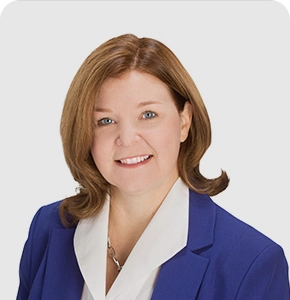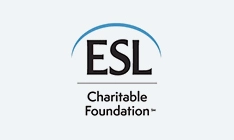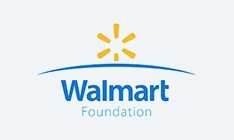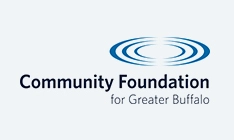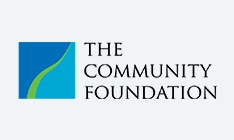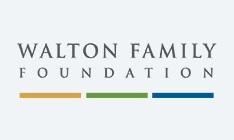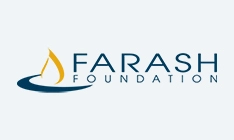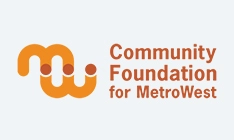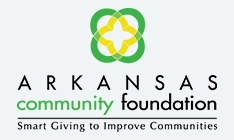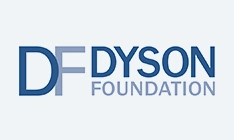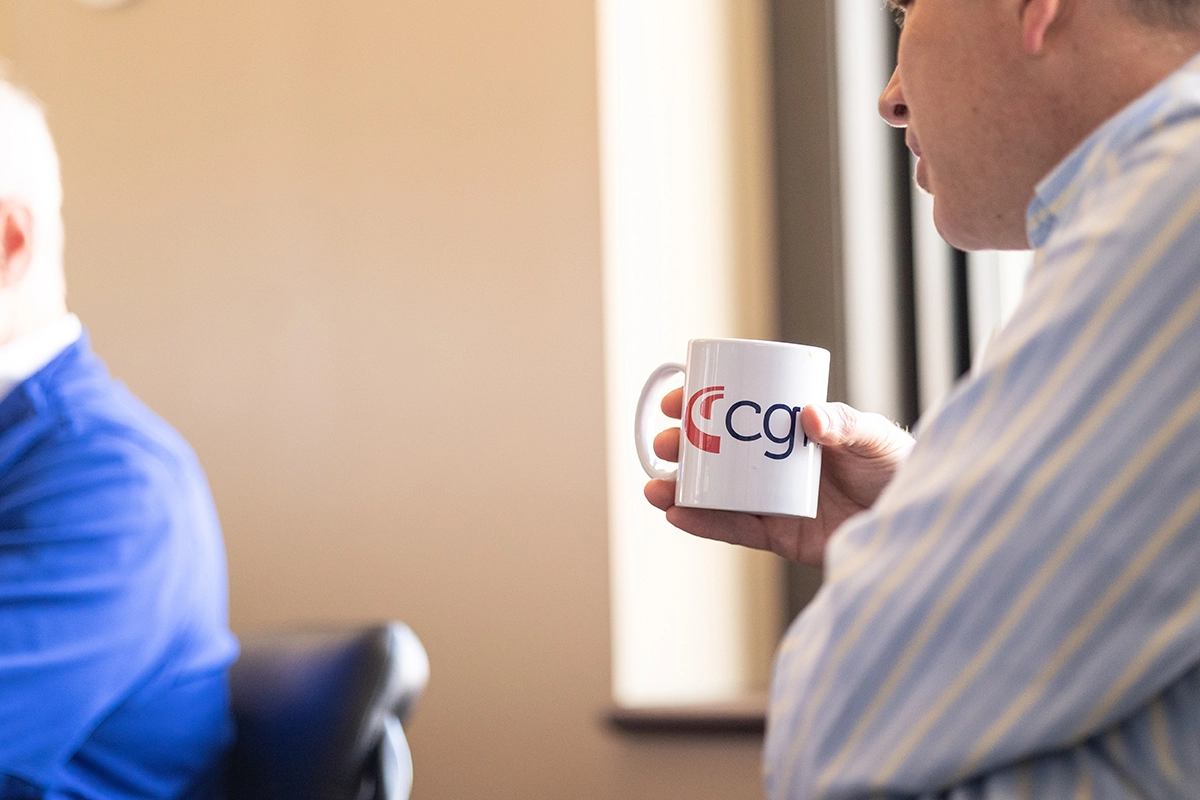
Funders are working to solve some of the thorniest problems in communities, and they need to be informed by the best information. They are also looking for partners who understand equitable practices and how to work in true partnership with community members. CGR assists funders in understanding their communities, through demographic analysis and community engagement as well as landscape scans of existing initiatives, resources and collaborations. We also help funders to examine their impact while being mindful of power differentials and burdens placed on grantees.
Featured Work
Food Insecurity: Mapping the Charitable Food Network in Northwest Arkansas
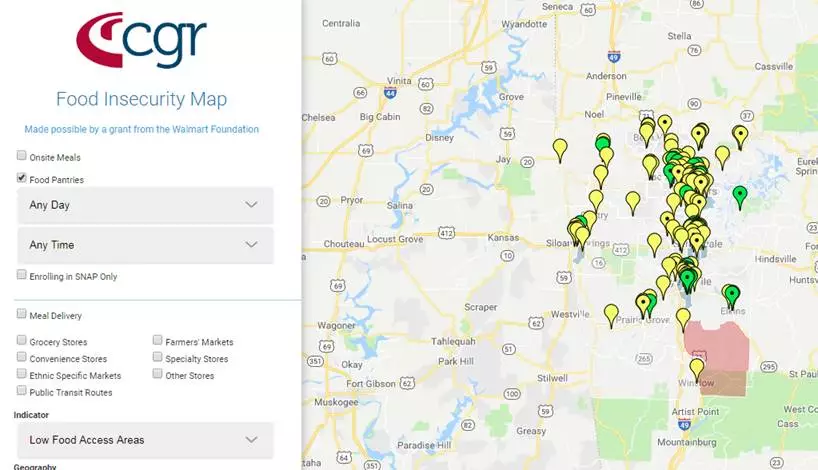
With funding from the Walmart Foundation, CGR conducted a rigorous examination of food insecurity and the charitable food system in Northwest Arkansas to inform and drive planning and collaboration among stakeholders concerned about food security within the two-county region. CGR collected and analyzed national and local demographic and socioeconomic data on food insecurity and related indicators, created an inventory and survey of local charitable food providers and their services, analyzed qualitative data collected through focus groups with charitable food providers and clients, and created an online interactive map displaying the location and characteristics of food resources in the context of geographic and socioeconomic data, in addition to a written report examining gaps and making recommendations.
Mapping Assets for Capacity Building
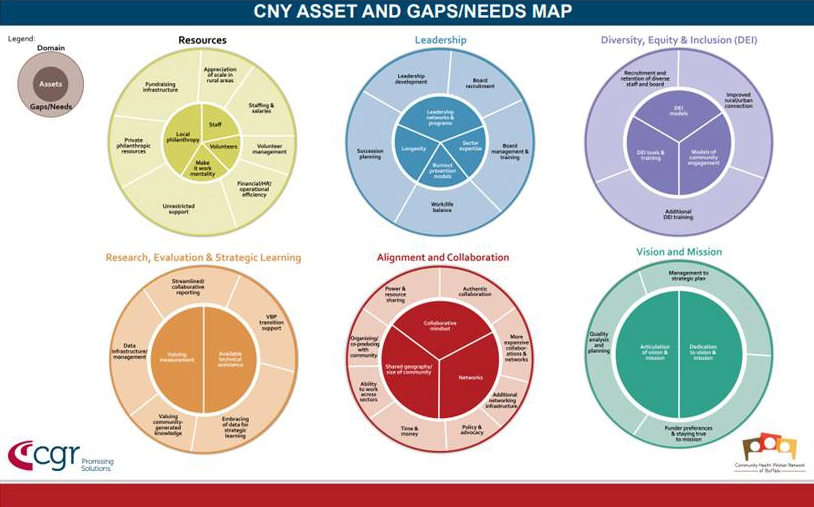
Recently, we completed a study of the capacity building needs of nonprofit organizations and the assets available in a nine-county region of Western New York (WNY) for a working group of five foundations located throughout WNY and Southeast Michigan. The funders are deeply committed to diversity, equity and inclusion and were particularly interested in hearing from organizations in rural areas and smaller, grassroots, community-based organizations not typically engaged by these foundations.
The study was designed to be inclusive, iterative and co-created with both nonprofits and the funders. To facilitate these goals, CGR managed a steering committee comprised of five rural or grass-roots nonprofit organization representatives and conducts bi-weekly calls with the five funders to help shape the work and to share and discuss leaning in real time. Throughout this project, which included surveys, one-on-one interviews and focus groups, we interacted with hundreds of nonprofits and a dozen foundations across the nine-county area, requiring strong project management and relationship management with both internal and external stakeholders. A similar study for the Central New York region was also completed by CGR.
Community Profile Websites Developed by CGR
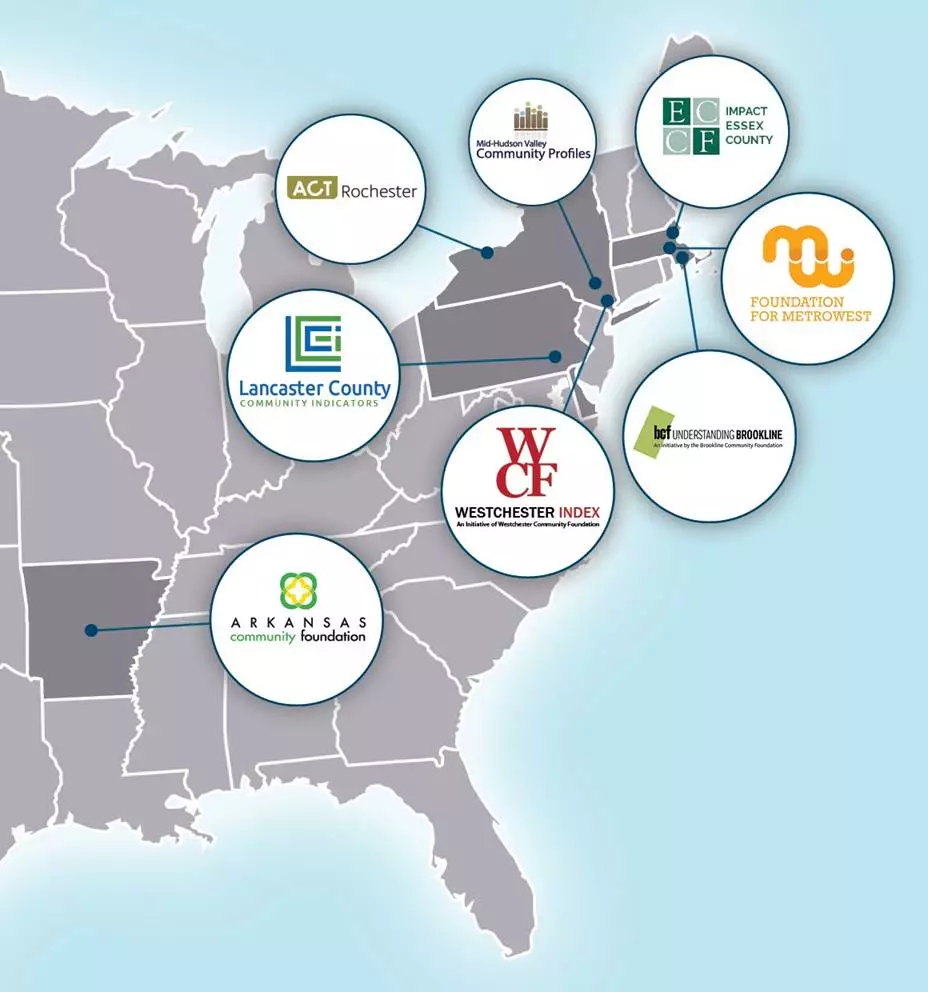
CGR has also designed and created community indicators websites for community foundations including the Arkansas Community Foundation, Essex County (Massachusetts) Community Foundation, MetroWest Foundation (also in Massachusetts) and the Rochester Area Community Foundation, and as part of that work consulted multiple stakeholder groups, presented key findings at community events, and advised foundations on how to engage communities around data.
Our breadth of substantive knowledge, expertise with data, and proven track record of creating attractive, compelling indicators websites helps communities harness the power of data to drive positive change.




